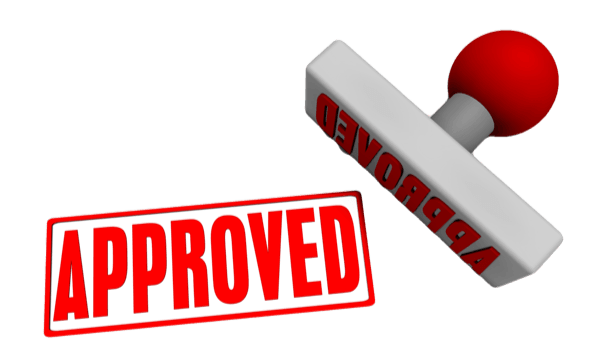How to Qualify for an SBA Loan

Securing a business loan can be critical for addressing urgent financial needs, and an SBA loan could offer the ideal solution. Entrepreneurs can obtain these loans to access the necessary funds to keep their ventures running smoothly or seize growth opportunities. Here's what you need to know:
What is an SBA Loan?
An SBA loan is a financing option backed by the U.S. Small Business Administration, designed to support small businesses. The SBA works with lending institutions to offer loans with lower down payments and flexible terms, making it easier for companies to access funds. These loans are for various purposes, such as working capital, equipment purchases, or real estate. The SBA guarantees a portion of the loan, reducing the lender's risk and facilitating approval for borrowers.
Exploring Different Types of SBA Loans
Different types of SBA loans cater to various business needs.
- SBA 7(a) loans are the most versatile, providing up to $5 million for working capital, equipment, or real estate.
- CDC/504 loans offer long-term, fixed-rate financing for significant assets like buildings and equipment.
- Microloans provide smaller loans—up to $50,000—to startups and small businesses for working capital or inventory.
- Disaster loans help companies to recover from declared disasters with low-interest loans.
Each loan type has specific eligibility requirements, repayment terms, and application processes, making it essential to choose the right one for your business needs.
How Do Small Business Loans Work?
Small business loans provide financial support to businesses for various purposes, such as expansion, inventory, or operating expenses. The process begins with identifying a suitable lender and loan product. Applicants must meet eligibility criteria, including credit scores, business plans, and financial statements. Some loans may require collateral.
Once approved, lenders disburse the funds in a lump sum or installments. Repayment terms vary, typically involving monthly payments with interest over a specified period. Repayment schedules and interest rates depend on loan type, amount, and borrower’s creditworthiness. Successfully managing the loan can help companies to improve their credit and support business growth.
Steps to Qualify and Apply for an SBA Loan
Qualifying and Applying for an SBA loan involves several essential steps:
- Prepare Financial Documentation: Gathering essential financial documents for an SBA loan requires a comprehensive business plan. This plan should showcase your business model, growth strategies, personal and business tax returns, and financial statements.
- Determine Eligibility: Ensure your business meets SBA size standards, is for-profit, and operates within the U.S. Some industries may have specific requirements.
- Good Credit Score: Maintain a solid personal and business credit score. Lenders typically look for a credit score of 680 or higher.
- Business Experience: Demonstrate relevant industry experience and a solid management team.
- Loan Purpose: Clearly define the loan's purpose, whether it's for working capital, equipment, or real estate.
- Collateral and Down Payment: Be prepared to offer collateral and down payment, typically around 10%.
- Apply through an SBA-approved lender: It's crucial to submit your application through a lender that the SBA approves. These lenders are well-versed in the process and requirements and will guide you through the application process.
Following these steps can enhance your chances of securing the funds.
Uses for SBA Loans: Equipment, Working Capital, and More
Companies typically use SBA loans for various business purposes, including:
- Working Capital: Cover daily operational expenses.
- Equipment Purchase: Acquire machinery or technology.
- Real Estate: Buy, renovate, or expand commercial property.
- Inventory: Stock up on products and supplies.
- Debt Refinancing: Consolidate or refinance existing debt.
- Startup Costs: Fund new business ventures.
- Disaster Recovery: Rebuild after disasters.
These uses help businesses grow, stabilize, and succeed.
How to Help Ensure Fast Approval for a Small Business Loan
To get approved for an SBA loan, maintain a strong credit score, prepare detailed financial documentation, and clearly define your loan purpose. Meet eligibility criteria and provide collateral if needed. Lastly, work with an SBA-approved lender who can guide you through the application process and submission of necessary documents.
Determining which SBA Loan is Right for You
To decide on the right SBA loan, carefully evaluate your business needs. For instance, consider the 7(a) loan program for versatile funding or the CDC/504 loans if you need significant asset financing. For smaller amounts and startups, opt for the Microloan program and choose the SBA Disaster Loan program for disaster recovery.
Review eligibility, loan terms, and specific requirements of each program. Remember, you're not alone in this. Consult with an SBA-approved lender for tailored advice based on your business situation. Their expertise will guide you toward the best loan program for your needs.
In Summary
Borrowers can speed up the loan process by gathering all required documentation in advance, such as financial statements, business plans, and tax returns. They should also ensure accurate and complete information, respond promptly to lender inquiries, maintain a strong credit profile, and choose lenders known for quick processing. Efficient communication is essential.
Need a Business Loan Quickly? Call Us Today!
If you need a fast business loan and guidance on the best loan options for your business, contact American Capital Express today.
Exton, PA 19341
Website by Power Marketing International









